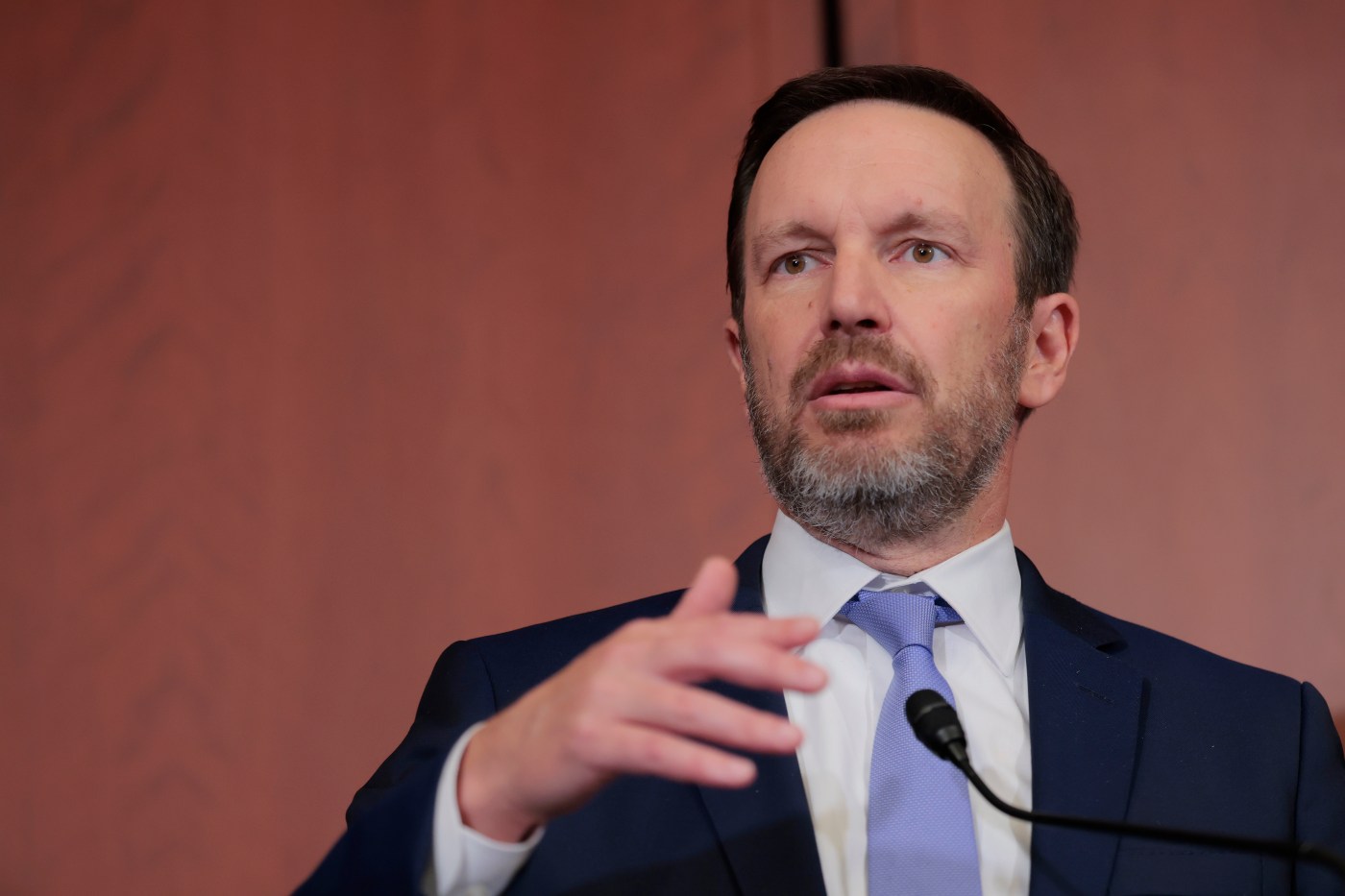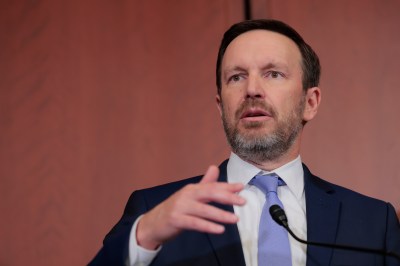The Supreme Court’s ruling last week upholding a Tennessee law banning puberty blockers and hormone therapy means that similar statutes in 27 states may stay in effect. Perceived Democratic support for such treatments and transgender accommodations in general undoubtedly hurt the party in the 2024 presidential election, but the recent court decision has not shifted congressional Democrats much on the issue.
After the 6-3 decision in United States v. Skrmetti, some top Democrats blasted the decision. The Dispatch asked Democrats on Capitol Hill this week whether states should have the authority to outlaw gender treatments for kids. “Not if the doctor and families have decided that it's medically necessary,” Rep. Ro Khanna of California said.
It’s been over seven months since Republicans gained a governing trifecta with heavy help from Democrats’ positions on transgender issues. President Donald Trump’s campaign hit then-Vice President Kamala Harris on her previous support for taxpayer-funded sex change surgeries for prison inmates in an ad, lauded by election analysts, that proclaimed, “Kamala is for they/them. President Trump is for you.”
Following the election, a New York Times poll conducted in January showed just how out-of-step Democrats were with most Americans on accommodating people who identify as something other than their biological sex. Close to 80 percent of respondents said that biological males who identify as female should not be allowed to participate in women’s sports. More than 70 percent said no one under 18 should have access to puberty-blocking drugs or hormone therapies. Though some Democrats have moved a little on the issue of sports participation for trans people, they are not budging on the availability of gender dysphoria treatments, and none who spoke to The Dispatch this week affirmed that states have the right to restrict them for minors.
Rep. Seth Moulton of Massachusetts took flak from his party’s left flank last year for suggesting Democrats should change how they tackle trans issues, saying just after the 2024 election that he did not want his daughters “getting run over on a playing field by a male or formerly male athlete.” But he did not show the same skepticism about minors diagnosed with gender dysphoria receiving treatment.
“I don't think politicians should be in the business of banning medical care,” he told The Dispatch. “There are important questions that need to be asked by physicians, by doctors, by medical ethicists, about this care, but when politicians just make blanket, politically motivated bans on any kind of care, this is no better than Trump telling us we should all take bleach to cure COVID.”
For Moulton, state governments should not have the right to restrict such treatments.
“It seems to me that it would be a lot smarter to have these policies made at the federal level, so they're not subject to the political whims of the states,” he said.
However, there are still signs that Democrats sense an electoral vulnerability. Sens. Raphael Warnock of Georgia and Mark Kelly of Arizona both represent states Trump won last year, and neither wanted to answer questions about the issue. Warnock referred The Dispatch to his office, which did not respond to a request for comment. When Kelly was asked whether states should be able to ban transgender treatments for minors, he seemed to ignore the question and began bashing the One Big Beautiful Bill Act that Republicans are attempting to push through the Senate. He also ignored a followup question about whether minors can consent to hormone treatments and surgical interventions. Arizona law prohibits gender-reassignment surgeries for minors, while Georgia bans both surgeries and hormone therapies for anyone under 18.
Sen. Chris Murphy of Connecticut—who, like Khanna, has emerged as a leader for communicating Democratic messages following the election—did not respond directly to questions about the issues in Skrmetti, saying he did not know the case, but he did say Democrats should welcome voters who don’t take the party line on such policy matters. “I think that we can be overly judgmental and exclusionary in the way that we conduct our politics,” he told The Dispatch. “I would like us to build a big-tent party in which if you believe in a fair economy and you believe in unrigging your democracy, we want you in. That means that we should have room inside our tent for people who don't agree with us on issues ranging from abortion to climate to transgender rights.”
But there are Democrats who are moderating their stances on transgender issues, and the issue of protecting girls’ and women’s sports seems to be an easier way for them to do so than wading into the fraught topic of pediatric gender treatments. Rep. Jared Golden of Maine, who narrowly won reelection in a district that Trump carried by 9 points, has said that, in his state’s public schools, “biological boys shouldn’t compete in sports against biological girls,” adding that state governments have the authority to handle the issue. Golden did not give a clear answer on whether the federal government should overrule state governments on the issue of access to pediatric gender treatments, but he expressed some doubts about giving hormone therapies to kids.
“I think the older someone gets, the more clear it becomes that they are able to make their own decisions,” Golden said. But it is “pretty tough, I think, for lawmakers to choose whether that's age 16, age 17, age 20, right? Like, where's the line? Sometimes things are best handled between medical professionals, but I generally would express an extreme skepticism that people at young ages should be making these decisions.”
Before next fall’s midterm elections, Democrats will need to decide whether to recalibrate their message on transgender issues. Already, Republicans have attempted to put them on the record. A bill that would ban biological males from competing with women and girls in school athletic programs passed the House but could not overcome the filibuster in the Senate. Republicans and groups aligned with them have already hit Democrats who voted against the bill, including Jon Ossoff of Georgia, considered the most vulnerable incumbent Democratic senator in 2026. Thus far, Democrats have not put together a major effort to fend off such attacks. We’ll see if they do by next November.







Please note that we at The Dispatch hold ourselves, our work, and our commenters to a higher standard than other places on the internet. We welcome comments that foster genuine debate or discussion—including comments critical of us or our work—but responses that include ad hominem attacks on fellow Dispatch members or are intended to stoke fear and anger may be moderated.
With your membership, you only have the ability to comment on The Morning Dispatch articles. Consider upgrading to join the conversation everywhere.